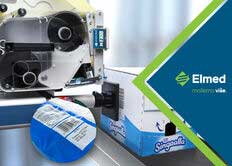Amendments to the Trade Act - Barcode i QR code

Why do we need barcodes?
According to the new Law on Trade of January 31, 2020, all products in retail stores in Serbia must contain a barcode or QR code (Quick Response Code).
What is a barcode?
The barcode is a unique numeric string of characters converted into vertical lines that can be easily read with the help of a barcode or QR scanner.
In order to avoid confusion in the market, the issuance and assignment of appropriate barcodes is done through the national register of bar codes (GS1 Serbia). For all additional information in cooperation with GS1, you can contact us by email or phone.
GS1 (National Barcode Registry), with which we have an exceptional cooperation, issues and assigns appropriate barcodes. For all additional information in cooperation with GS1, you can contact us by email or phone.
A QR code is a two-dimensional 2D code, known as a matrix code. Unlike the barcode, it can be generated independently, it is free and it is more focused on informing the consumer about the product and interaction with the consumer.
What information must the barcode or QR code contain?
The application of the Law on Trade, before the amendments were made, required that every product must be duly declared. Goods in retail establishments should have a declaration containing the following information:
• name and type of goods
• type and model in accordance with the nature of the goods
• quantity expressed in a unit of measure or piece in accordance with the properties of the goods
• business name of the manufacturer, and for imported goods the business name of the importer and the country of production
The data must be stated in a clear, easily noticeable and legible manner, in Serbian, in Cyrillic or Latin script.
Declarations with accurate data should be provided by the manufacturer and the importer, but traders are also responsible for their existence.
What the new Law on Trade requires is to add a barcode or QR code to the existing declaration, which must contain all the necessary information. Product data on the barcode or QR code is entered by the manufacturer, respecting the readability rules of the content prescribed by the authorized company for the assignment and registration of barcodes in the national code register.
How are barcodes printed?
Before starting the process of printing codes, it is necessary to check whether the code is legible and whether the data is appropriate for the product.
The position of printing barcodes on the product is not defined by law and it is left to the owners of brands to adapt it to the design of packaging, taking care that the barcode is placed in a visible place, not bent, obscured or damaged.
The printing of the barcode on the product depends on the product itself, as well as the place where it is placed. Industrial ink jet printers can print text and graphics that are easy to recognize and read, to enable product identification on glass, plastic, metal and rubber surfaces.
In addition to the manufacturer, traders are also responsible for the inadequately marked product in retail stores. Therefore, one of the solutions is to mark the product with a declaration that has a printed barcode. They can be printed by the manufacturer or retailer with the help of a desktop barcode printer and appropriate consumables - self-adhesive stickers and TTR ribbons.
The Elmed company is a representative of major global brands in the field of barcode TTR printers and consumables, and also one of the leading companies on the market in the production of self-adhesive stickers on a roll.
Compliance with changes to the trade law does not necessarily mean buying a printer. There are printing office such as Elmed, which offer the service of printing barcodes on self-adhesive labels of appropriate dimensions, which greatly facilitates the work of producers and traders.
